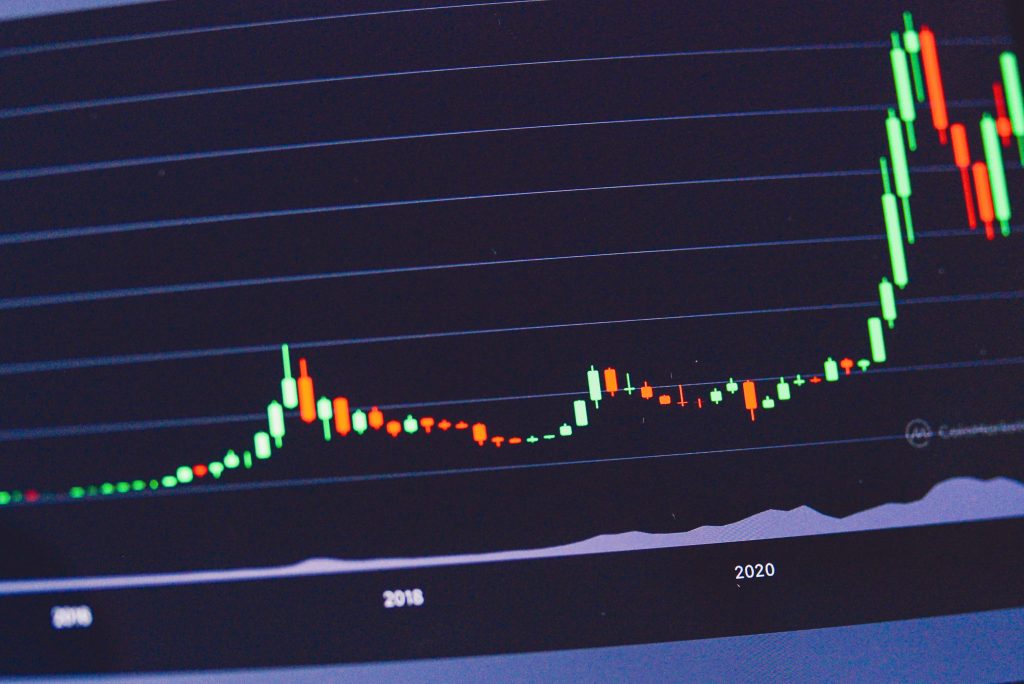3 Undervalued Dividend Stocks To Buy For High Total Returns
These deep value dividend stocks come with solid, reliable yields
When it comes to selecting dividend stocks to buy, investors can take their pick: high yield stocks, blue chip stocks with safe payouts, stocks with high dividend growth rates, value stocks; the list goes on.
But selecting undervalued dividend stocks is particularly advantageous for a variety of reasons, not the least of which is that dividend yield is higher when a stock’s price is lower, as they move inversely.
Here are 3 undervalued dividend stocks to buy for high total returns:
- Triton International (NYSE:TRTN)
- Perrigo Company (NYSE:PRGO)
- LyondellBasell Industries (NYSE:LYB)
A low valuation also means a better chance for higher capital appreciation (in addition to the income received) when that undervalued stock sees its valuation multiples rise.
Dividend Stocks to Buy: Triton International (TRTN)
Our first stock is Triton International, a company that acquires, leases and sells intermodal containers and chassis to shipping lines, manufacturers and freight forwarders. Triton leases many types of containers including tanks, specialty, dry and refrigerated. It also trades in containers, buying and selling on the open market.
The company has nearly four million containers in its fleet, so scale is massive. Triton operates internationally and is based in Bermuda. The company was founded in 1980, employs about 240 people, generates about $1.5 billion in annual revenue and trades with a market capitalization of $3.6 billion.
Triton released second quarter earnings on July 27, 2021, with results coming in higher than the comparable period a year ago. Total leasing revenue came to $370 million, a 15% gain year-over-year. The company said a favorable trading environment boosted results and that higher consumer spending globally was increasing demand for its containers. This also led to much higher sale prices for containers that the company sold.
Adjusted earnings-per-share came to $2.14 in Q2, more than doubling from 86 cents in the year-ago period. Triton posted lower operating and financing expenses and in concert with rising revenue, margins soared.
Utilization was up 20bps in Q2 to 99.5% and the company said that by the end of July, utilization was up a further 10bps to 99.6%.
We see Triton’s fair value estimate at nine times forward earnings while today, TRTN stock trades for just 6.6 times 2021 earnings estimates. Our updated estimate of $8.30 per share means that despite the recent rally we’ve seen in the stock to current levels around $55, Triton remains quite cheap. Indeed, we expect a 6% tailwind to annual total returns from the valuation alone as it moves higher.
Combined with the expected annual earnings growth rate of 5% and the current dividend yield of 4.1%, Triton looks poised to offer very attractive 14.7% total annual returns in the coming years. The stock has a unique blend of value, growth and yield that we think will reward shareholders richly in the years to come.
Perrigo Company (PRGO)
Our next stock is Perrigo, a company that provides over-the-counter health and wellness solutions for consumers to self-manage or prevent conditions. Perrigo develops, manufactures, markets and sells a wide variety of vitamins, minerals, supplements, skincare, personal hygiene and related products for sale globally. Perrigo also has a line of generic prescription drugs, creams, ointments and more that it distributes to pharmacies globally.
Perrigo was founded in 1887 and is headquartered in Dublin, Ireland, employing more than 11,000 people. The company produces about $4.1 billion in annual revenue and trades with a market capitalization of $6.6 billion.
Perrigo reported second quarter earnings on August 11, 2021. Total revenue was $981 million for the quarter, up 3.4% year-over-year, which included 80bps of acquisitions and 370bps from favorable currency movements, partially offset by -150bps from divestitures. Organic net sales were up 50bps, including a -230bps impact from lower cough and cold sales.
The company’s operating loss was $126 million, down from an operating gain of $63 million in the same period of 2020. On an adjusted basis, however, operating income was $118 million against $132 million, a year-over-year decline of 10.7%. The decline was due to higher operating expenses, lower volumes and unfavorable plant overhead, higher input costs from freight and commodities and divestitures.
Adjusted net income was $68 million, or 50 cents per share, down from $82 million, or 59 cents per share in the year-ago period, respectively.
Perrigo said it was reiterating its net sales guidance for the year following Q2 results as demand from consumers remains strong. However, the company also said it expects earnings-per-share at the lower end of its prior range due to higher input costs, which it now sees as a factor into next year. Perrigo plans to raise prices to offset some of this.
Perrigo has increased its dividend for 19 consecutive years, placing it on the Dividend Achievers list.
Perrigo previously guided for 3% to 7% earnings-per-share growth from last year, with the lower end of that range at $4.14 per share. Using that as our estimate, shares now trade at just 10.4 times earnings, well off from our estimate of fair value at 15 times earnings. That implies a 7.6% tailwind to total shareholder returns from the valuation alone.
Combined with the current 2.2% dividend yield and 5% earnings growth estimate, we see total annual returns of 14.6% in the coming years.
LyondellBasell Industries N.V. (LYB)
Our final stock is LyondellBasell, a chemical company that operates primarily in the US and Europe. The company produce a wide variety of chemicals and plastics focused on goals such as water purity, improved functionality of electronics and appliances, food safety, fuel efficiency of internal combustion engines and more.
LyondellBasell generates about $42 billion in annual revenue and trades with a market capitalization of $35 billion.
The company posted second quarter second quarter earnings on July 30, 2021, and results were quite strong. Total sales were $11.6 billion, more than doubling from the year-ago period as gains were seen across all of the company’s operating segments.
Earnings came to $2.1 billion, or $6.13 per share, both of which were up enormously year-over-year from $314 million and 94 cents, respectively.
We now see $15 in earnings-per-share for this year following Q2 results, meaning shares trade for just 7.1 times this year’s earnings. That implies a 7.2% tailwind to annual shareholder returns, making LYB among the most undervalued stocks we cover.
Shares also yield 4.5%, while the company has increased its dividend for 10 years in a row. We view the dividend as secure, in addition to the attractive valuation.
Final Thoughts
While dividend investors have plenty of choice in what to buy, we see buying income-generating stocks that are also undervalued as a great way to blend income and capital return potential.
The three stocks we’ve looked at here all have respectable dividend yields and very low valuations, meaning dividend investors can get the income they desire with the potential for sizable capital appreciation in the years to come.
Note: This article originally appeared at InvestorPlace.
On the date of publication, Bob Ciura did not have (either directly or indirectly) positions in any of the securities mentioned in this article. The opinions expressed in this article are those of the writer, subject to the InvestorPlace.com Publishing Guidelines.
Bob Ciura has worked at Sure Dividend since 2016. He oversees all content for Sure Dividend and its partner sites. Prior to joining Sure Dividend, Bob was an independent equity analyst. His articles have been published on major financial websites such as The Motley Fool, Seeking Alpha, Business Insider and more.
Category: Dividend Stocks To Buy?





